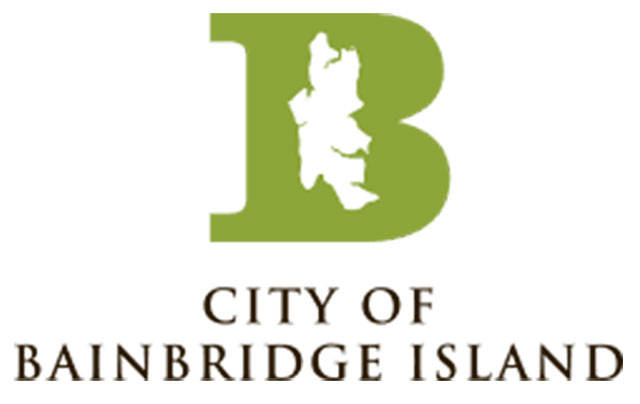Bainbridge Island’s hearing examiner has dismissed an ethics complaint filed by former councilman Ron Peltier that was made against four former members of the city’s Ethics Board.
Peltier, who was dogged by ethics complaints during his last two years on the city council and frequently lashed out at the Ethics Board, filed an ethics complaint against the former board members Jan. 29.
Suzanne Keel-Eckmann, former chairwoman of the board, and Ingrid Billies, Maradel Gale and Brian Strully, former members of five-member advisory body, resigned en-masse Jan. 27 in protest of changes made by the city council to the city’s Ethics Program. In their resignation letter, signed by all four members, the four said the council’s changes to the program “stifles citizen complaints and reduces the role of the Ethics Board to administrative gatekeeper.”
Peltier’s complaint alleged that the members had violated the Code of Conduct of the Ethics Program. He also claimed, without proof, that the members had violated the state’s Open Public Meetings Act by collectively signing the letter. He also alleged the four met in secret to talk about the city’s Ethics Program.
“I believe that the 1/27/20 letter from the Ethics Board to the city council clearly shows that a secret meeting was conducted by a quorum of the Ethics Board for the purpose of discussing city business related to the city’s Ethics Program,” Peltier wrote in his four-page complaint.
City Hearing Examiner Ted Hunter rejected the complaint in a four-page decision that was tendered Feb. 24 and recently posted on the city’s website.
He said that the complaints made by Peltier “are not ones that can be considered by the hearing examiner under the resolution adopted by the city council.”
“The city’s Code of Conduct and Ethics Program applies only to persons actively associated with city government, not those who have resigned or completed their terms,” Hunter wrote in his decision.
Hunter also said Peltier’s complaint was also out of bounds due to the fact that the four Ethics Board members who quit were no longer working on behalf of the city.
“The individuals named by Mr. Peltier in his complaint resigned before the complaint was filed with the city. Complaints may only be filed when the individual named is a member of the city council, a committee, or a commission. The individuals named in the complaint are no longer members of the Ethics Board. Therefore, the complaint must be dismissed as moot,” Hunter said in his decision.
“The restriction of the application of the Code of Conduct and Ethics Program to only members of the city council, committees, or commissions makes sense,” Hunter explained. “Otherwise, anyone at any time could allege a violation of the Code of Conduct for past behavior of one who was once a member of the council, a committee, or a commission for behavior that is long past, where facts may be difficult to ascertain and the conduct alleged is no longer damaging to ongoing governmental operations. Such alleged violations by persons no longer a member of the council, committee or commission fall outside the scope of the Code of Conduct and Ethics Program, even if true.”
In his decision, Hunter also detailed what he considered to be “moot.”
“Moot means that the issue raised is ‘of little or no practical value, meaning, or relevance’ so that, ‘in practical terms, the issue … is moot because the deadline has passed.’ Washington courts have also addressed mootness. Our state supreme court has decided that a case is moot if effective relief can no longer be provided,” Hunter said.
Hunter dismissed the complaint, but added that alleged violations of the Open Public Meetings Act should be “best directed to superior court, which has the authority to decide them and to assess penalties.”
“The hearing examiner makes no decision on the merits of those allegations,” he added.
The ethics complaint is the first submitted to the city in nearly a year. Meetings of the Ethics Board have been in limbo since last year, when the city council began making changes to the city’s Ethics Program.
The Ethics Board currently has just one member, as appointments to fill the four vacancies has yet to occur.
During his time on the council, and during the discussion of changes to the Ethics Program, Peltier frequently championed the idea of having the Ethics Board specifically included in any revisions to the program as subject to complaints about members’ activities.



